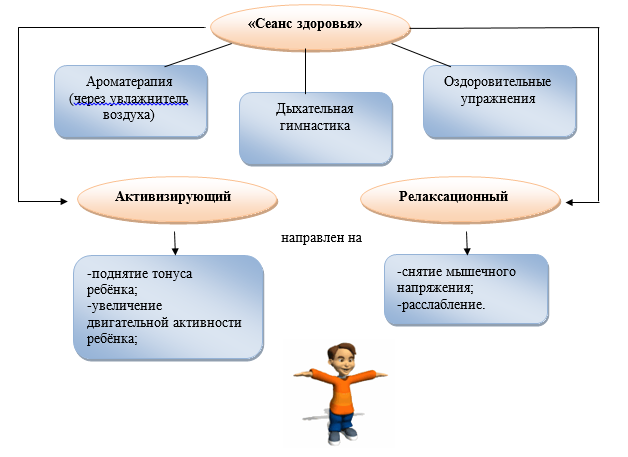Lecture
Formation of a healthy child, the full development of their body is one of the main problems in modern society. At preschool age, the child’s physical development is intensive, which is directly related to health.
According to research by specialists, 75% of adult diseases are laid in childhood. The full physical and mental development of the child and his health is the basis for the formation of personality. Referring to the dictionary S. I. Ozhegova: "Health is the correct, normal functioning of the body." The Charter of the World Health Organization (WHO) states that health is not only the absence of disease or physical defects, but also full physical, mental and social well-being. That is why the problem of health should be considered in a broad social aspect. Health is a physical, hygienic, spiritual, social culture of a person.
The protection of children's health and its strengthening are a subject of special care for adults. After all, the child is still so small that it cannot protect and strengthen its health without the help of an adult. Adults create a favorable material environment, provide the child with life safety, nutrition, promote physical activity, etc. An adult's activity aimed at improving the health of the child is the content of physical education, which under certain conditions provides the child with full physical and mental development, strengthens his condition health
Physical education is an educational process characterized by all the features inherent in the pedagogical process: the leading role of the teacher, the focus of the teacher’s activities on the implementation of the tasks of physical education, building a system of classes in accordance with didactic principles. Physical education is a process aimed at improving motor skills and skills along with optimizing the development of a person’s physical qualities, the totality of which determines his physical capacity. Physical education is aimed at improving the health of the child, his physical development, as well as optimizing the physical activity of children. Physical development is the process of changing the forms and functions of the body, under the influence of living conditions and upbringing. In the narrow sense, the term is used to refer to anthropometric and biometric concepts (height, weight, chest circumference, posture). In a broad sense, this concept includes physical qualities (endurance, agility, speed, strength, flexibility, balance, etc.).
The purpose of physical education is the preservation and strengthening of health, the formation of vital motor skills of the child in accordance with his individual characteristics, the development of physical qualities, the formation of a healthy lifestyle for children. In the process of physical education, recreational, educational and educational tasks are carried out.
Wellness tasks have a special place. They include the protection and strengthening of children's health, their overall physical development, the improvement of body functions, the increased activity and the overall performance of children. The second group of tasks consists of educational tasks that provide for the formation of children's motor skills and abilities, the development of physical qualities, the preschoolers obtaining basic knowledge about their bodies, the role of physical exercises in their life activities, and ways to strengthen their own health.
Currently, the system of physical education, as well as working with children to promote healthy lifestyles in preschool institutions, is a unity of means, forms and methods of work aimed at promoting the health and comprehensive physical development of children. The system of formation of a healthy lifestyle in preschool institutions is based on the age and psychological characteristics of children. Means of realization of the group of health-improving tasks are: hygienic and social factors, good nutrition, health-improving forces of nature, rational mode of life, physical exercises. Means of realization of the group of educational tasks are; children's activities, games, and artistic media (fiction, folklore, movies, works of musical and visual arts). The means of implementing a group of educational tasks are: an example of an adult, children's own activities, artistic means.
The content of physical education for preschoolers includes: exercises for general developmental impact; exercises in basic movements; outdoor games and game exercises; sport games; rhythmic (dance) movements; exercises in building and rebuilding, in moving with a slide, with technical means; exercises for the development of movements in the aquatic environment. The main means of physical education for preschoolers include: good nutrition, daily regimen, exercise; natural factors; hygiene of clothes and premises, exercise, tempering. The means of physical education also include gymnastics, walks and excursions, holidays of physical culture, days of health.
The development of physical abilities of a person contributes to physical labor (especially in the fresh air), which can be used as an auxiliary means of physical education. Full physical development and attitude to health is possible only if the integrated use of all means of physical education.
Thus, the system of physical education is aimed at the formation of a healthy lifestyle for children in a preschool institution and represents the unity of the methods, forms and means of work of a teacher with children.

продолжение следует...
Часть 1 3.9. HEALTHY CHILD EDUCATION
Comments
To leave a comment
Pedagogy and didactics
Terms: Pedagogy and didactics